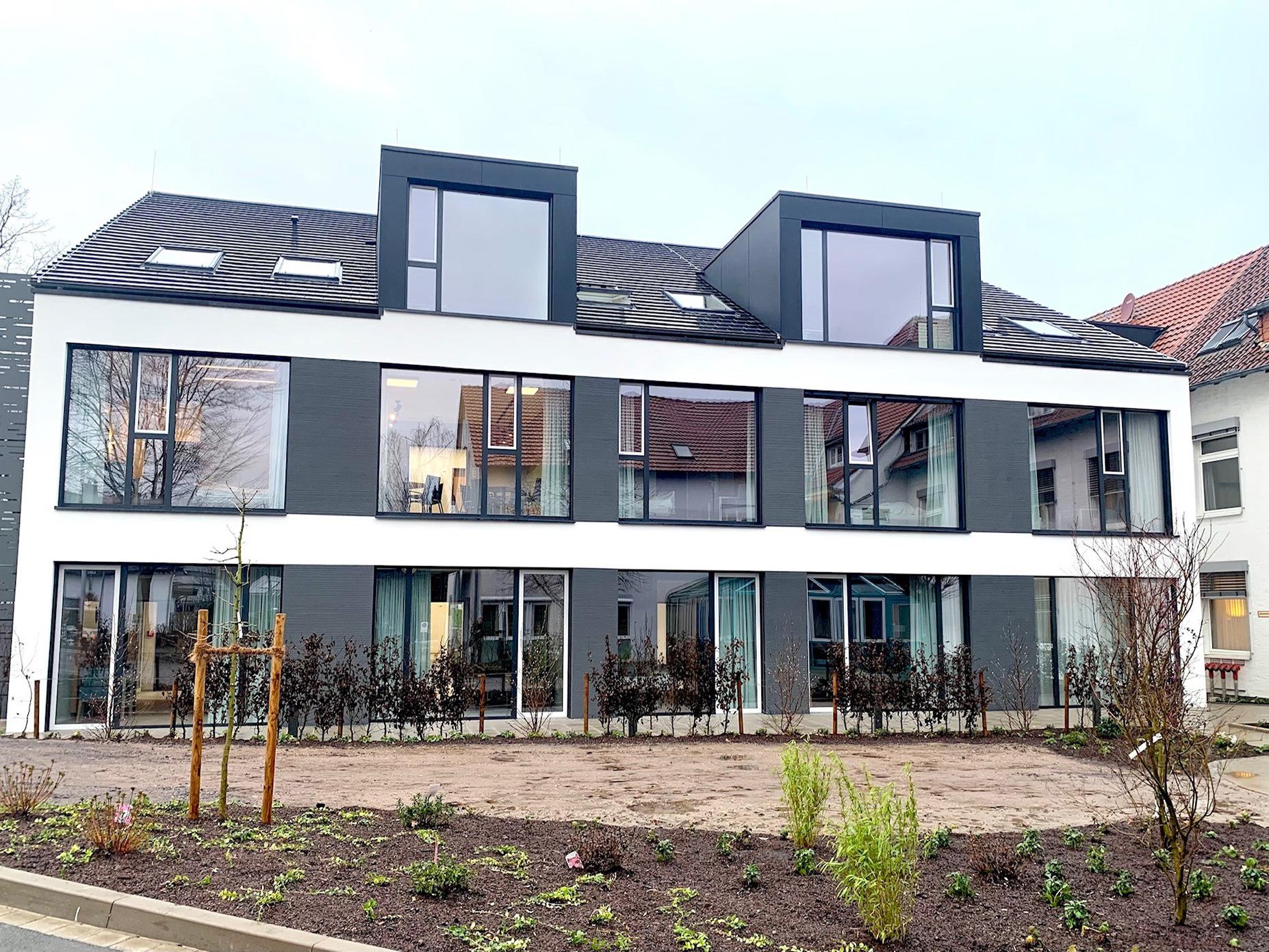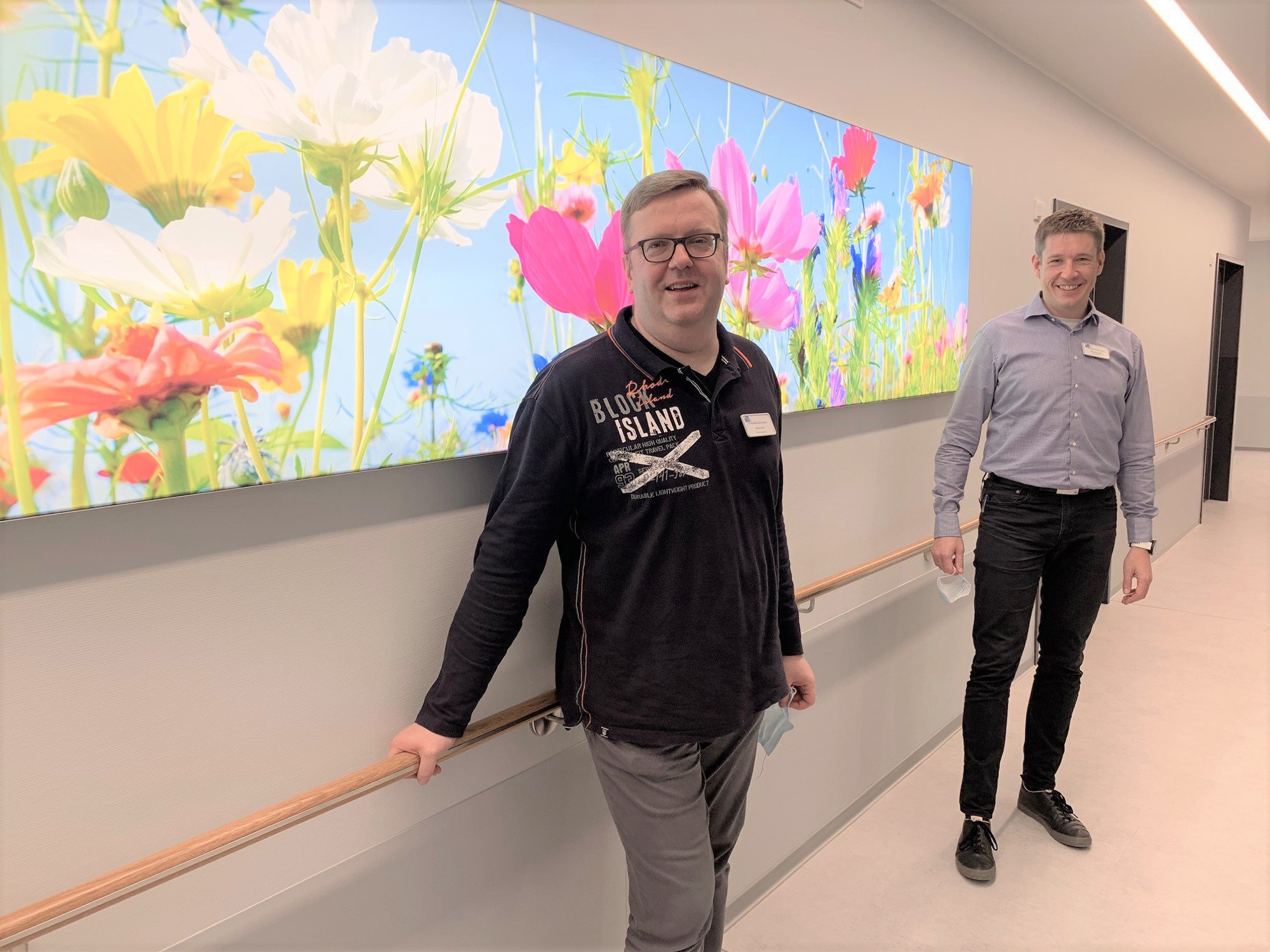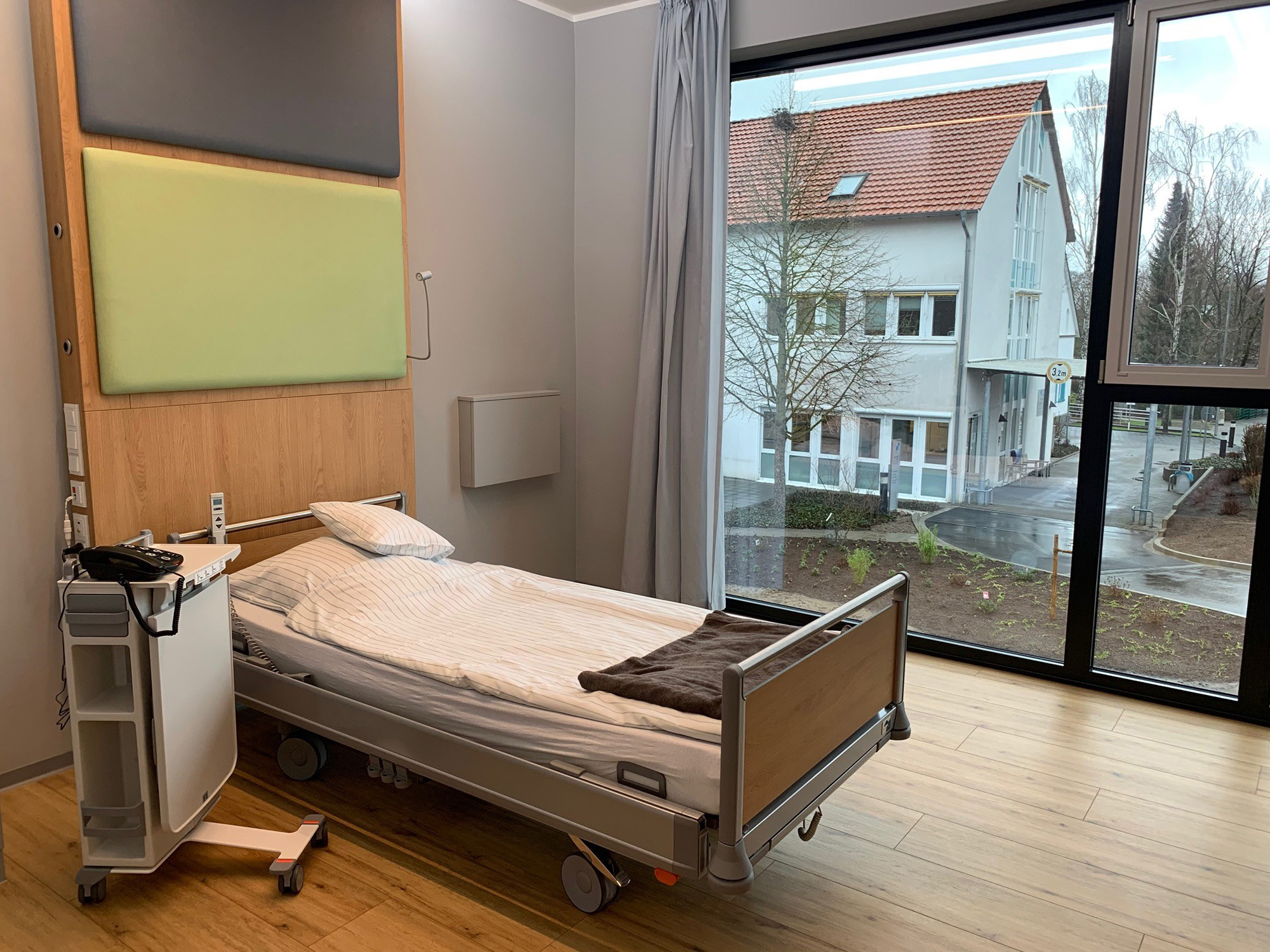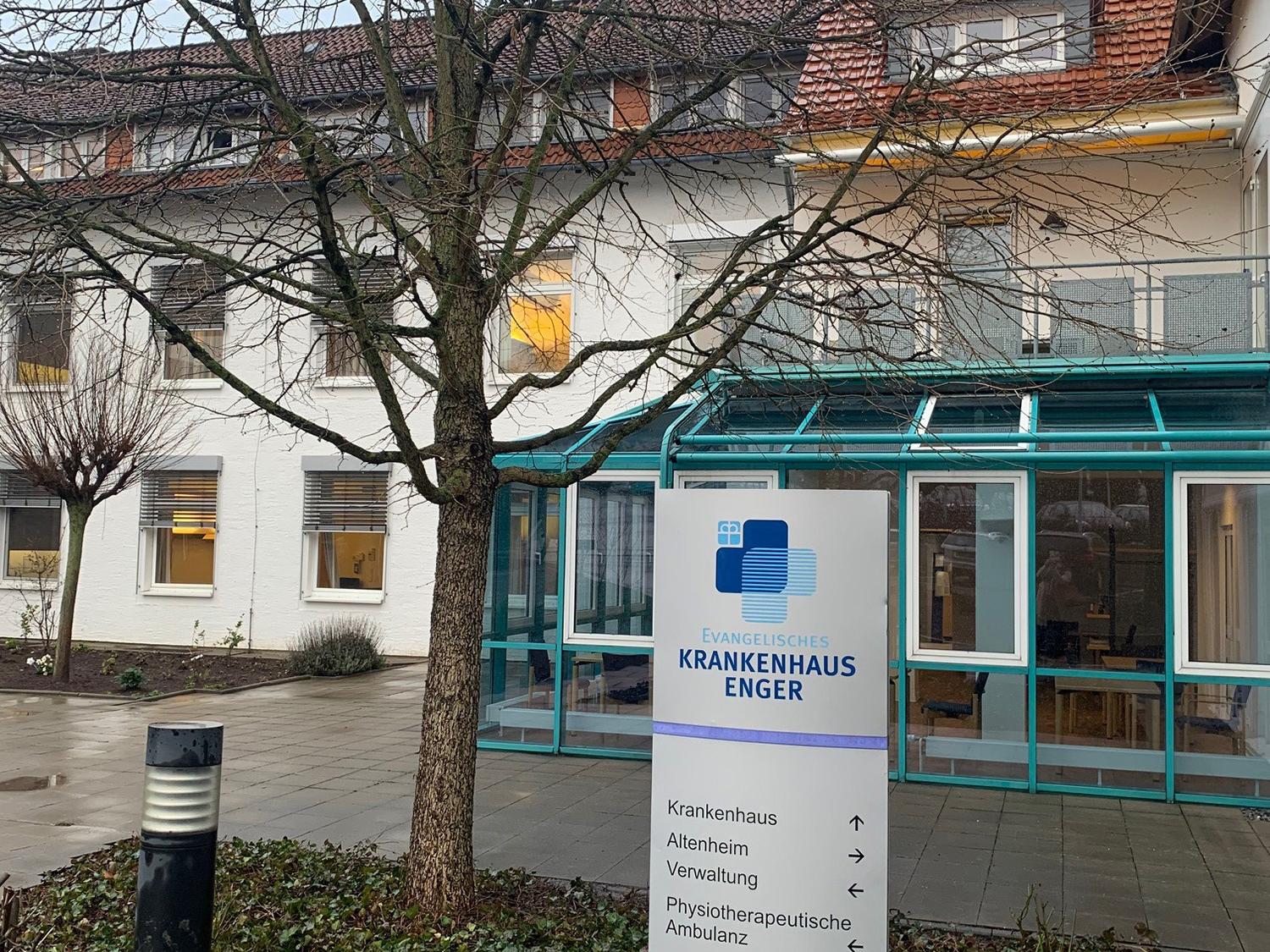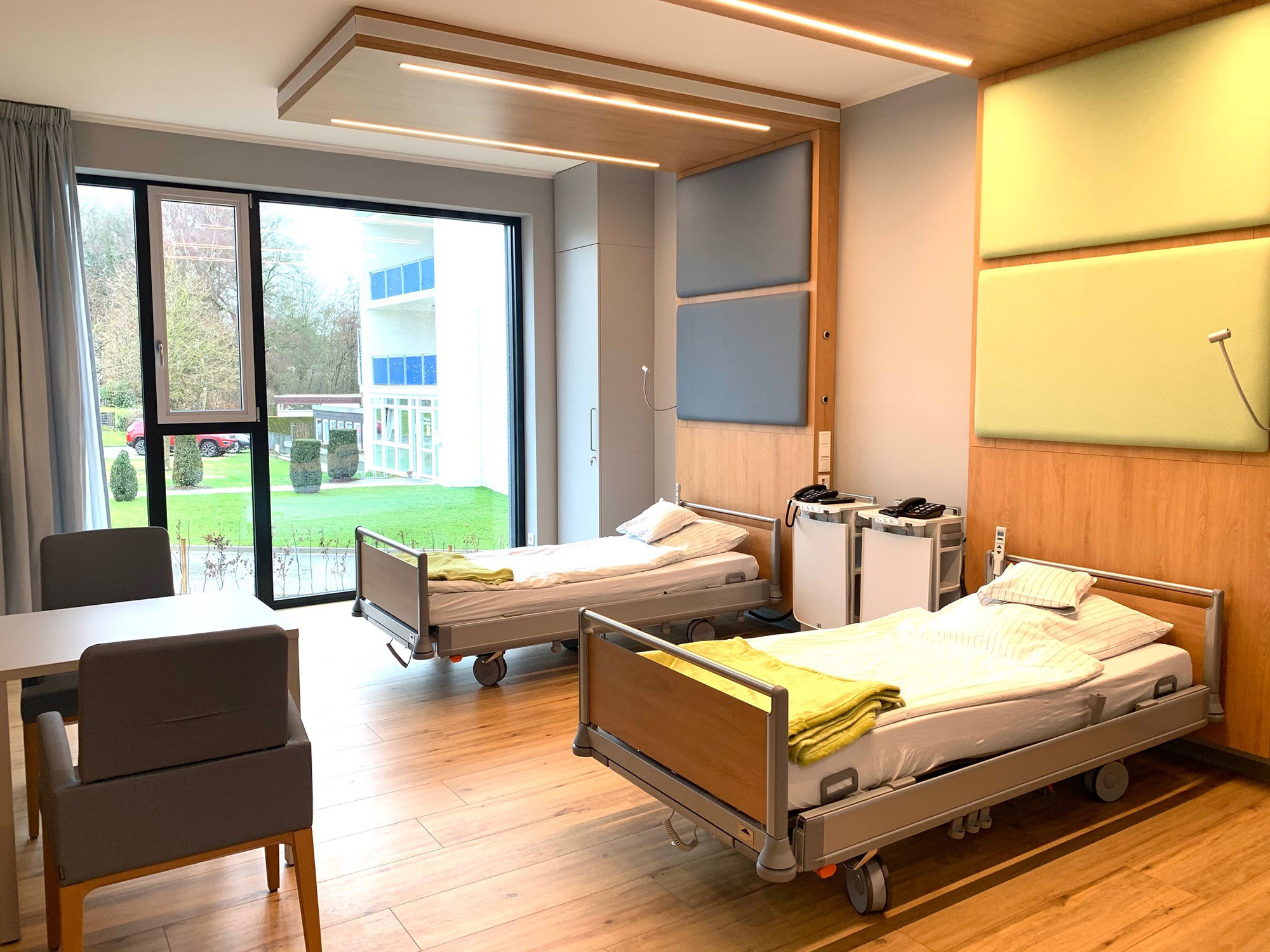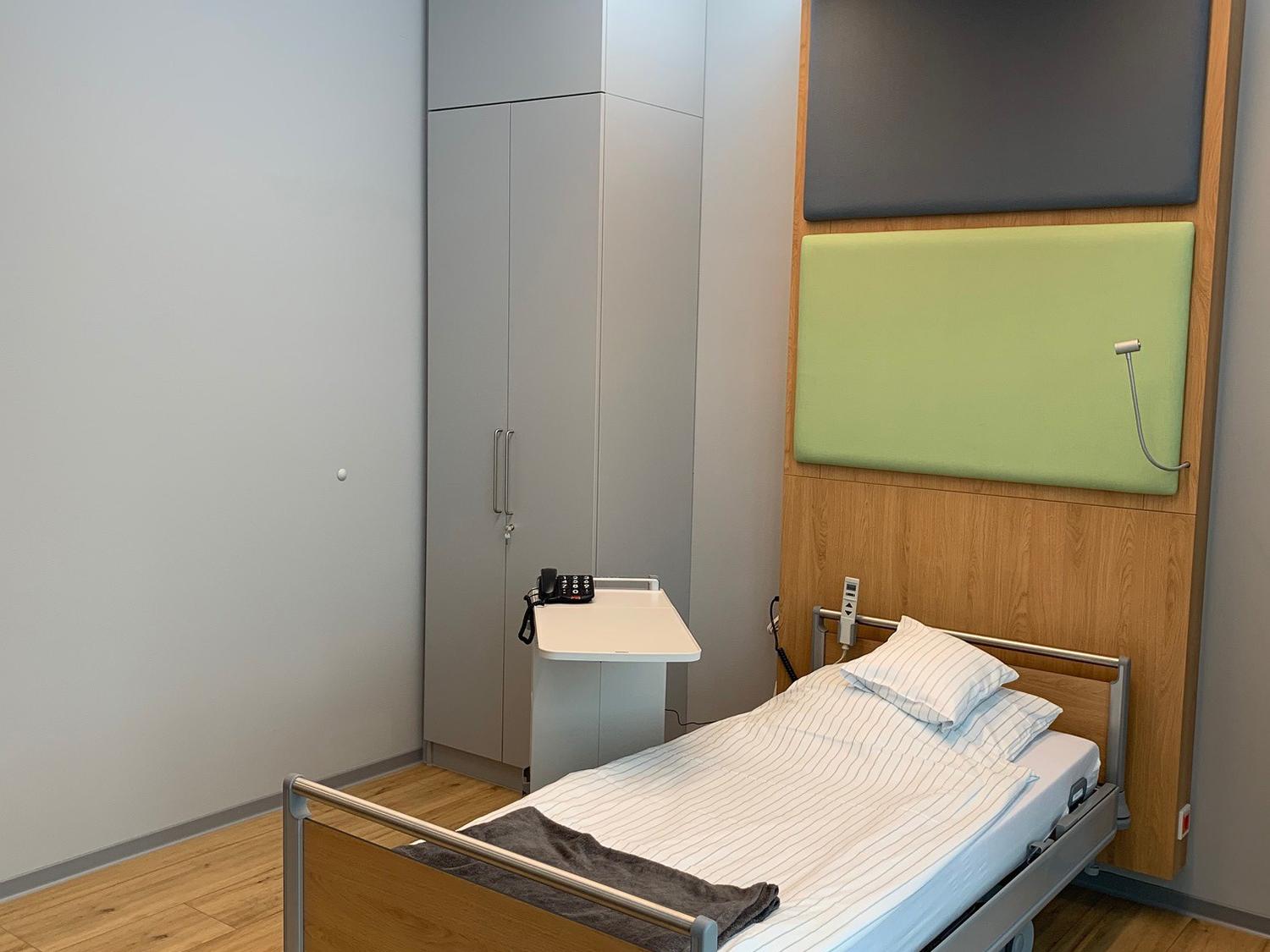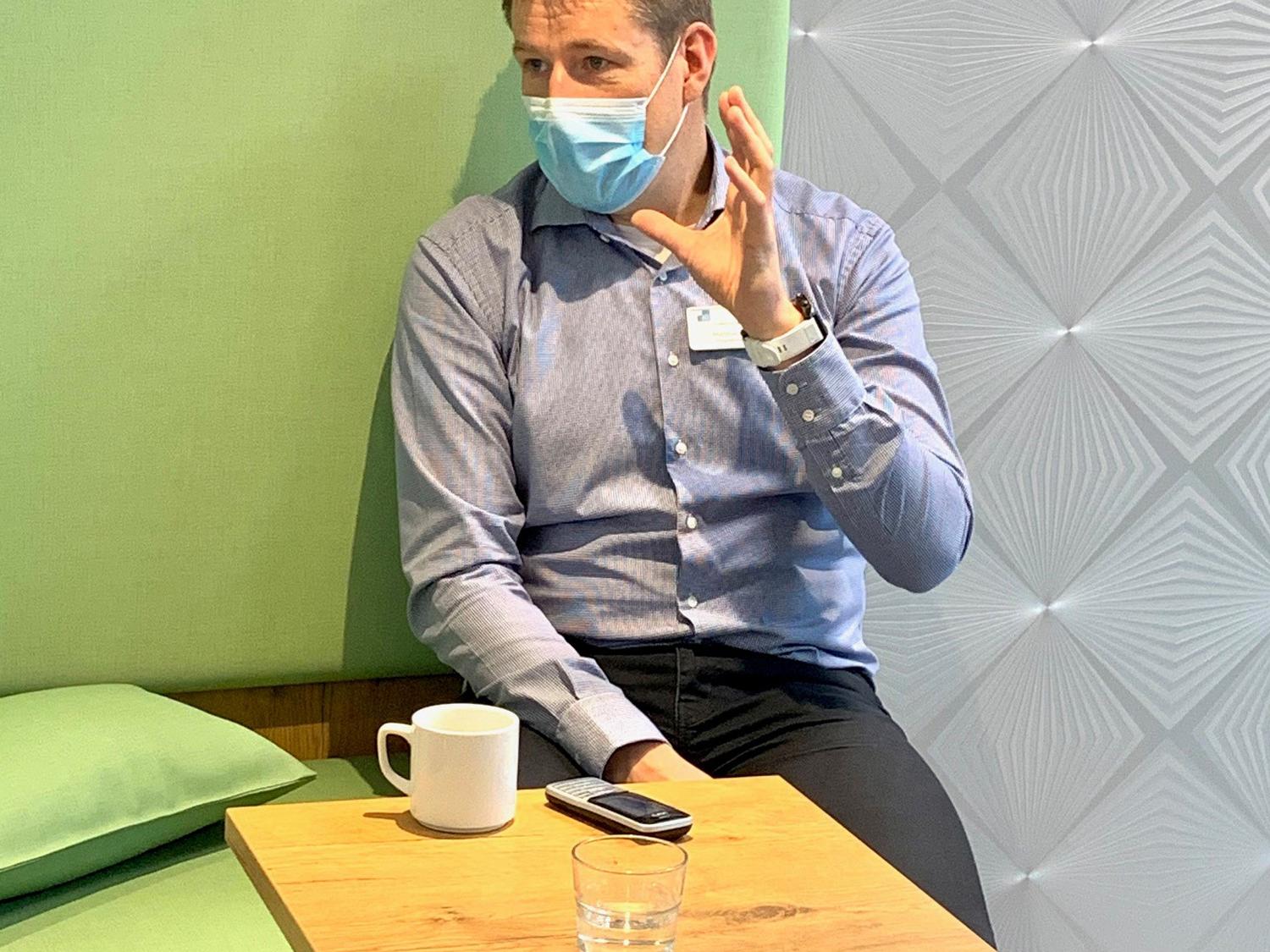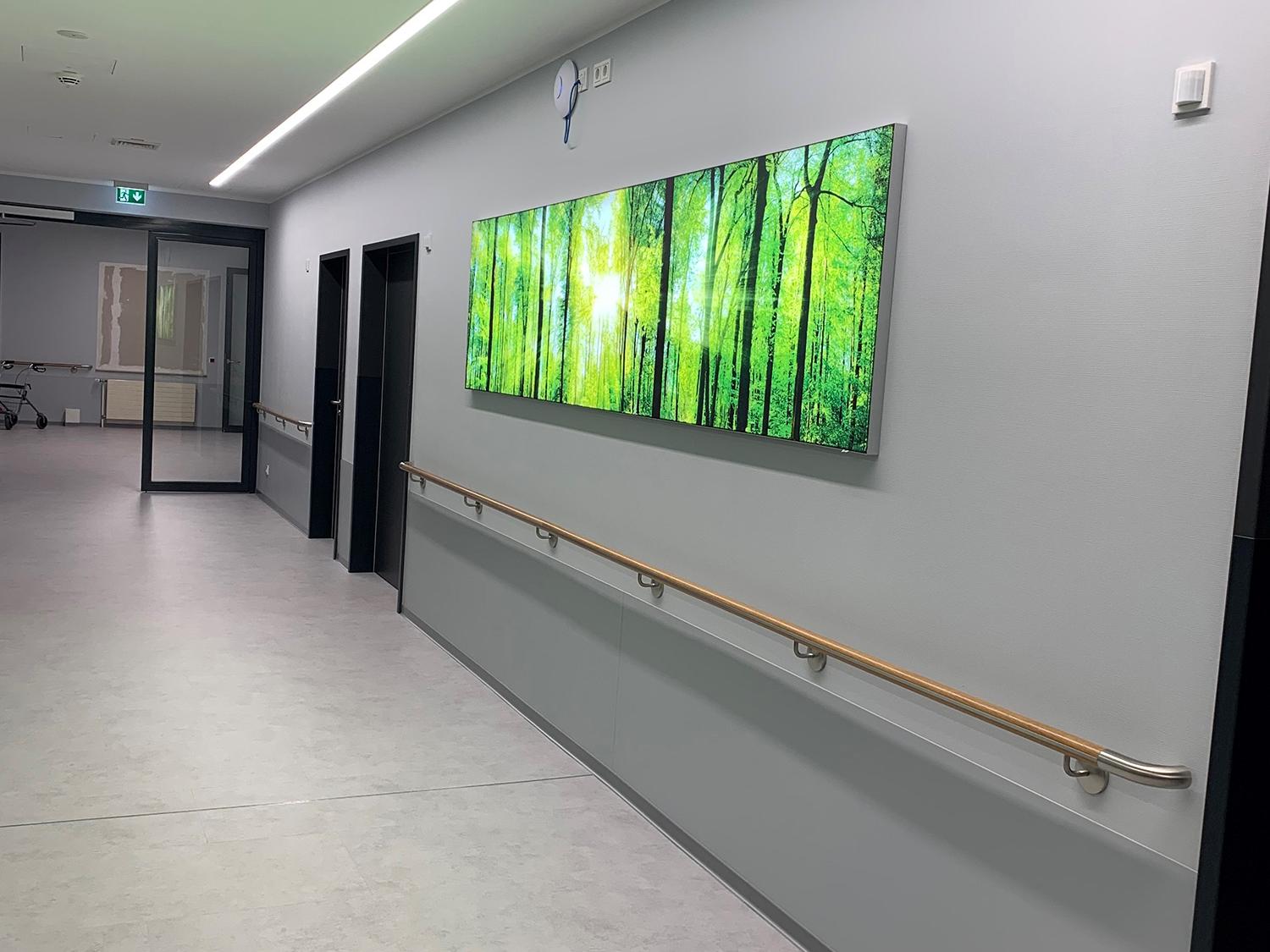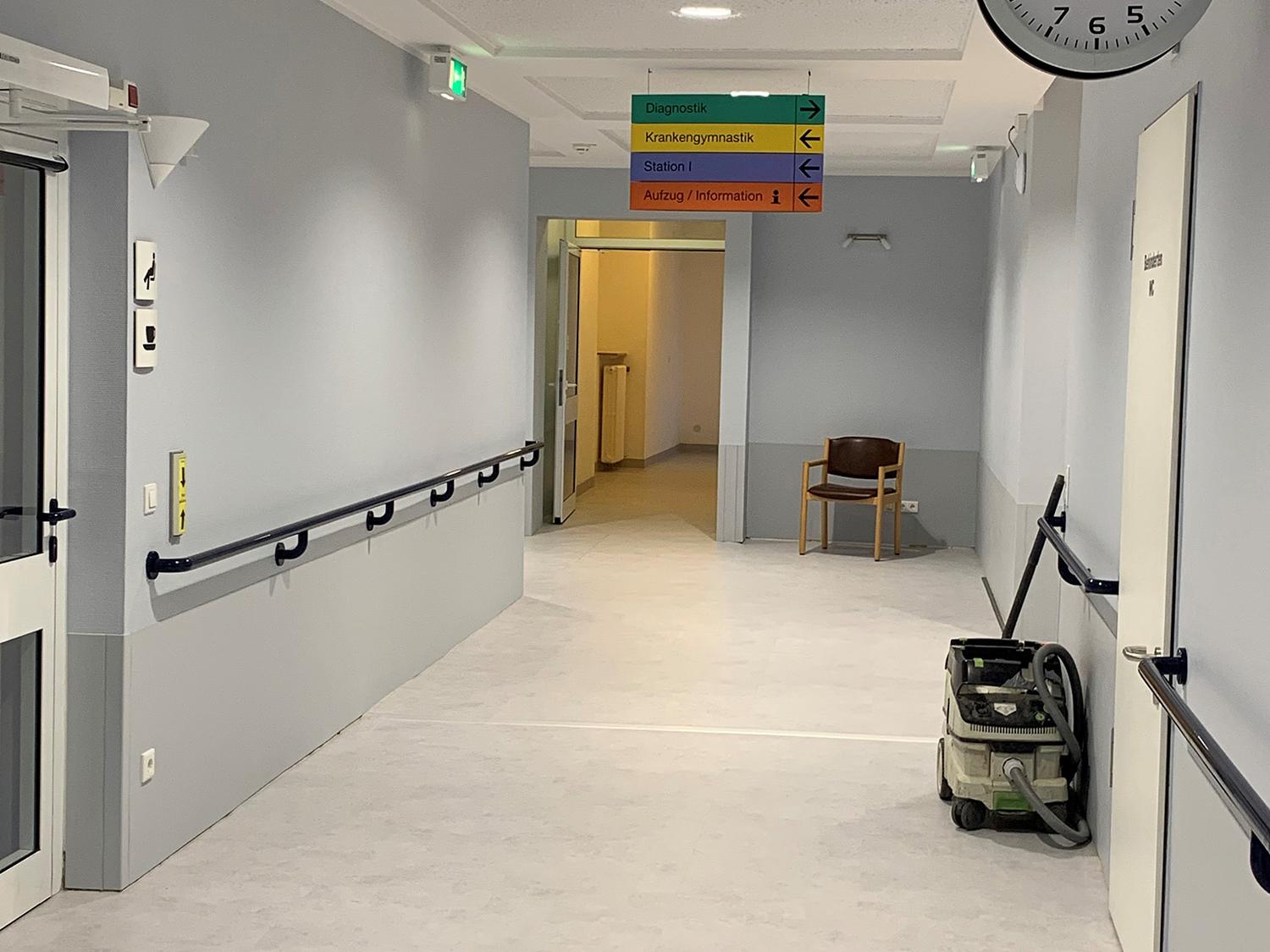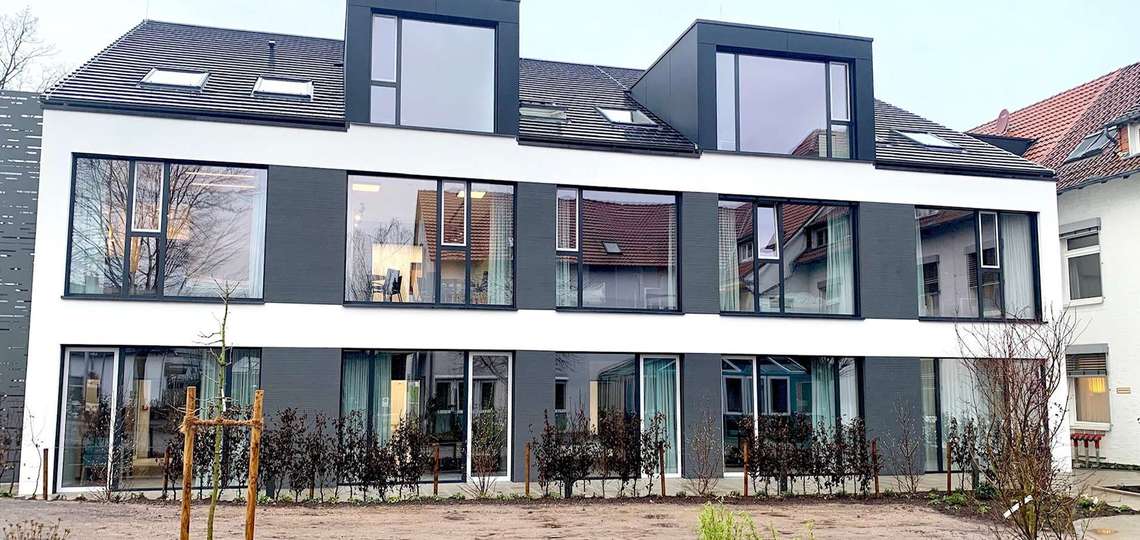
Nicer than a hotel
The specialist clinic for geriatrics in Enger opens an impressive new building
The Evangelical Hospital in Enger, Germany, has grown a third wing. An extension on the left side completes the building, which now stately and invitingly encloses the courtyard on the street side. The new building, costing just under 3.5 million euros, looks modern and elegant with its charming contrast of light façade and large dark window bands, and at the same time blends harmoniously into the entire ensemble. But the positive outward appearance is nothing compared to the surprises that await inside.
The Evangelical Hospital is a specialist clinic for geriatrics. Patients over 70 years of age are treated here who are recovering from the results of a fall or stroke, for example, or who suffer from multiple illnesses typical of old age. The new building comprises two floors, each with four single and four twin rooms. The hospital now has a total of 73 beds.
At the main entrance we are greeted in a friendly manner by Nursing Director Matthias Hill and Mario Ohl, one of the two ward managers. Actually, we are still in the old building here, but the reception and the corridor also look bright and new. Walls and floors have already been renovated – the old colour concept in yellowish tones gave way to fresh white and grey.
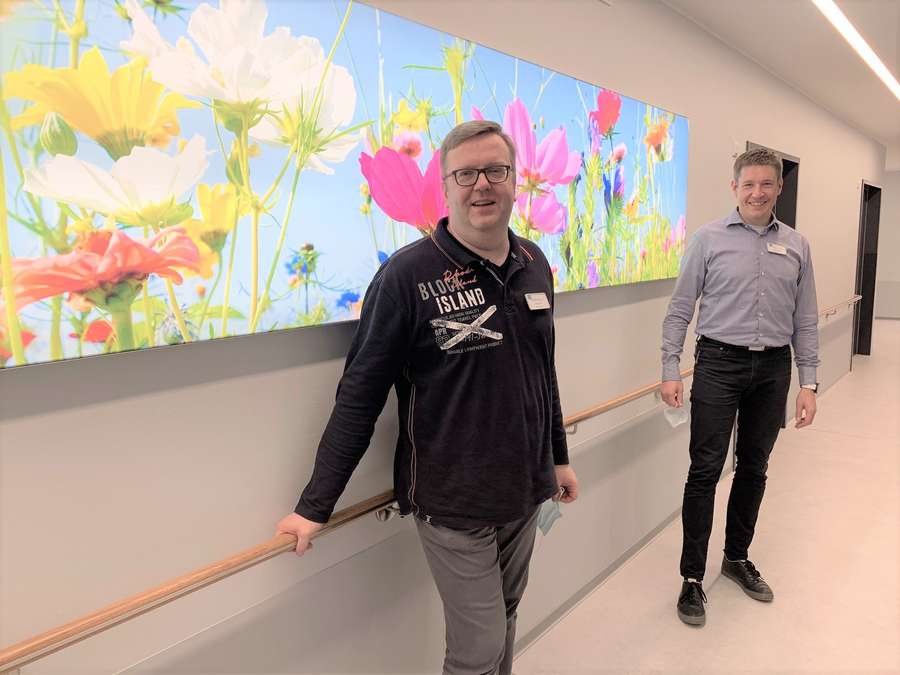
Rooms to feel at home in
Arriving in the new building, even the first glance at the rooms leaves you speechless. When marketers write about the interior design of hospitals, they like to use nice terms like "hotel character" or "bistro flair". In Enger, reality surpasses the advertising language. Large rooms with vinyl flooring in a warm wood optic actually look like hotel rooms in the upscale sector. Floor-to-ceiling windows let daylight flood in, and on the ground floor they can be opened to a surrounding terrace if desired.
Each Stiegelmeyer hospital bed of the Puro type stands in front of a wall-high wooden panel here, which continues up to the ceiling like the canopy of a four-poster bed. In addition to its modern functionality, the Puro was also chosen because its colour mix of wood decor head and footboards and grey full-length safety sides perfectly matched the furnishing concept of the specialist hospital. Light strips on the ceiling panel are sensor-controlled to match the daylight. Coloured upholstery elements above the beds in blue, green or turquoise create a pleasant atmosphere and make it easy for patients with limited cognitive abilities to recognise their sleeping area.
Practical bedside cabinet Quado
On the wall opposite the foot end, each patient has their own flat-screen TV, which is simply huge by hospital standards. The accessible bathroom in each room is also large. The equipment with modern sanitary facilities was an important reason for the new building, explains Mario Ohl. Patients can store their personal belongings in their Quado bedside cabinet from Stiegelmeyer. The practical, slim Quado was chosen because it takes up little space in the room. "In addition, the patients also appreciate the fact that they can push this lightweight bedside cabinet themselves to where they need it," explains Nursing Director Matthias Hill.
We sit down to talk in the new lounge on the first floor, for which the word "bistro flair" was invented. Actually, patients should have breakfast or coffee here, but COVID is making community life in the hospital difficult at the moment – life takes place mostly in the patient rooms. The hospital in Enger has come through the pandemic very well so far, and that's how it should stay. Matthias Hill describes the challenges posed by the crisis – it is particularly difficult for dementia patients when all faces are hidden behind masks. Overall, however, people have gotten used to the situation.
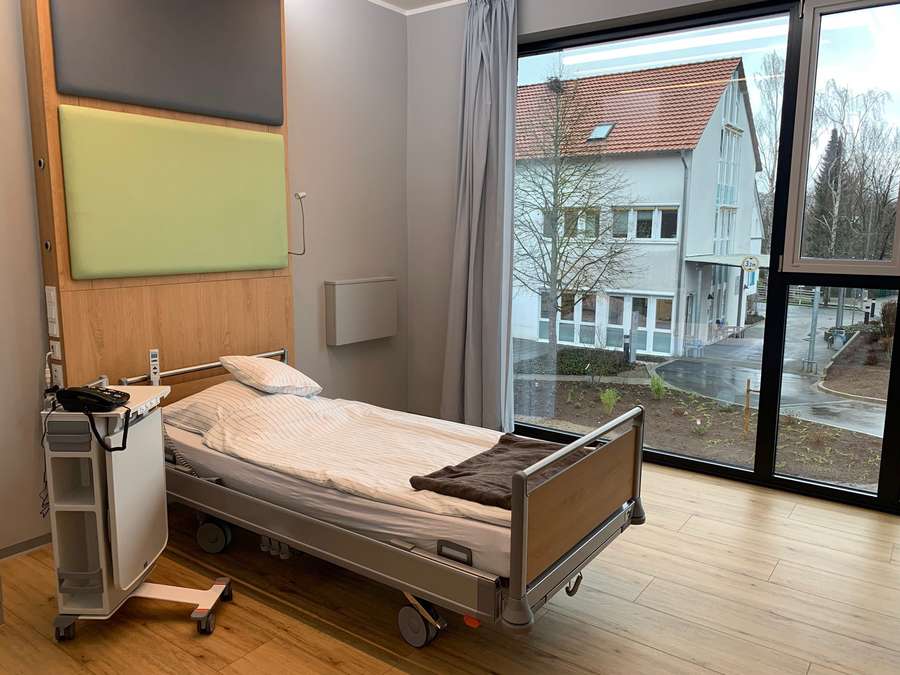
Perceiving patients as people
On average, patients stay three weeks at the specialist geriatric clinic. More than 90 percent return home afterwards, to independent living or homecare. During the stay, the nursing staff and therapists have a lot to do, Matthias Hill explains. When the patients arrive in Enger for follow-up treatment, they have often already spent some time in bed during the acute treatment in another hospital and have lost a lot of physical strength. Sometimes the elderly have had to do without conversation and touch for years: "These patients often say: I am old, I am not worth anything any more. With us, they are perceived as people again," says Mr Hill.
With the activating therapeutic care in Enger, the situation improves step by step and the patients regain their courage to face life. The patients recieve 14 to 16 individual therapy sessions during their treatment. Matthias Hill appeals to younger people to start moving more now, because the general immobility of our society will otherwise lead to major problems in old age.
But problems, the pandemic, the crisis, all that seems forgotten for a moment in the pleasant, friendly atmosphere in Enger. Not only for the patients, but also as a workplace, the Evangelical Hospital is attractive. When we spoke in mid-January, recruitment was not yet complete and there were still several full- and part-time positions to be filled.

